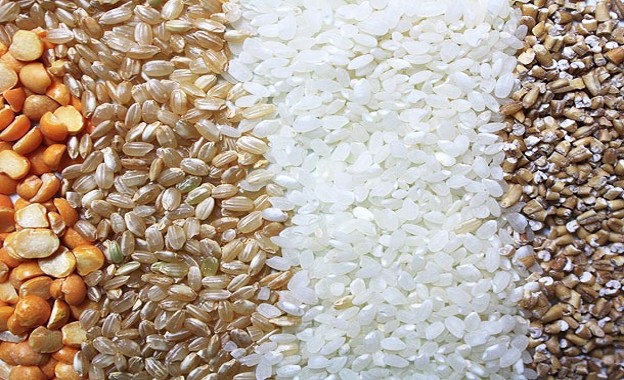In the world of marketing, you will require to have some tricks up your sleeve when it comes to marketing your products, and it is no different in the world of healthy living and nutritional supplements such as organic apricot seeds.
In fact, many labels have come up marketing these products as the best in their field, and many supplement manufacturers have also got into this as well. You have probably chosen a certain product just because of the health claims you see on its label, but do you know most of these labels are false? It is easy to be duped, unless you realize that these terms you see are not healthy in the first place.
If you have ever believed the hype that goes on, you are not alone. In fact, a survey revealed that almost 60 percent of customers have a difficult time trying to understand the labels that are slapped on all these products, so here are the most common ones.
All-natural
 This may not be what you imagine it to be. If you are not sure, the FDA (Food and Drug Administration) does not actually have a definition for the term, and food manufacturers as well as supplement makers will not really be in trouble for it. The only basic requirement they should haveis the product must not contain artificial flavors, added colors, or what are termed as ‘synthetic substances’.
This may not be what you imagine it to be. If you are not sure, the FDA (Food and Drug Administration) does not actually have a definition for the term, and food manufacturers as well as supplement makers will not really be in trouble for it. The only basic requirement they should haveis the product must not contain artificial flavors, added colors, or what are termed as ‘synthetic substances’.
This leaves a lot of room for interpretation. For instance, you may notice a product containing sodium, such as the typical fried chicken you eat at restaurants or fast food joints. Other products might have high fructose corn syrup, and the manufacturer will insist to you it is healthy because it originates from corn.
Multi-grain
 This mainly affects the grain-based products. When you decide to go shopping for products like crackers or bread (the healthy variety), look out for the words ‘100% whole wheat’ or ‘whole grain’. It is never enough if you see ‘made with whole grain’ or ‘multigrain’.
This mainly affects the grain-based products. When you decide to go shopping for products like crackers or bread (the healthy variety), look out for the words ‘100% whole wheat’ or ‘whole grain’. It is never enough if you see ‘made with whole grain’ or ‘multigrain’.
The carbs that are classified as whole grains will always have more nutrient value and more fiber compared to the refined carbs – the process that removes the healthiest parts of the grains. They include oatmeal, brown rice and popcorn.
In addition, do not just choose your grains using color as a basis. This is because some darker crackers or breads have caramel color, which makes them dark. That does not make them better than the refined white bread you see on the shelf. If you need some guidance on what to look for, there us a chart from The Whole Grain Council.
No sugars added/sugar-free
If you are looking to lose weight or have certain conditions such as diabetes, it is normal that carbs and calories you are consuming is a major concern. This may make you select all the products that have the ‘no sugar added’ label into your grocery list.
However, such assumptions ignore the fact that all carbohydrates contain sugar, regardless of the form of sugar they have. You will also get sugar content within vegetables and milk. Even if these products will claim they do not have sugar, they still contain these natural sugars, as well as maltodextrin, a carbohydrate ingredient that is added to these ‘sugar-free’ products.
In addition, just because a product contains the ‘sugar-free’ label, does not mean it has less calories compared to the regular version, like diet Coke – it can have more. The carbs and sugars will simply come from other sources, so you also need to watch out for that.
These sources include sugar alcohols like sorbitol and mannitol. These are lower in their calorie count (usually half of normal sugar), and they can lead to diarrhea if you consume too much within one sitting.
Zero Trans fat
 When you want to promote heart health, it is important to understand this type of fat is bad for you. However, that does not make the products containing this label have zero amounts of it – they can actually contain 0.5 grams for each serving. That means if you consumed two or more servings, that has already added a high amount to your body.
When you want to promote heart health, it is important to understand this type of fat is bad for you. However, that does not make the products containing this label have zero amounts of it – they can actually contain 0.5 grams for each serving. That means if you consumed two or more servings, that has already added a high amount to your body.
Make sure to examine if you see words like shortening and hydrogenated oils. These always tell you that there is trans-fat in the product. There are also products that will have higher levels of trans-fat compared to others, so make sure to check that as well.
Immunity boosters
A manufacturer can use words that include ‘supports the immune system’ or ‘immunity blend’, especially in supplements that have vitamins. However, these phrases are used mainly to add some aura of health to the item even when it does not need it anyway.
This is a fine line to tread because the FDA can easily decide to scrutinize the product if the manufacturer is making any health-related claims, and they will also scrutinize whether it actually works. In general, before deciding to go for a supplement, no matter what it is, make sure to consult with your doctor.
Fat free
 This happens to be among the most misleading labels you will ever get. It all began when people began to find out about the dangers of trans fat and saturated fats, so manufacturers flooded the market with new products that always claimed to be ‘fat free’. The major problem here is this – these products mostly contain as many calories, similar to their counterparts.
This happens to be among the most misleading labels you will ever get. It all began when people began to find out about the dangers of trans fat and saturated fats, so manufacturers flooded the market with new products that always claimed to be ‘fat free’. The major problem here is this – these products mostly contain as many calories, similar to their counterparts.
You do not get a free pass just because you bought a so-called ‘fat free’ product. Chances are high they could be full of sugars, and the sugar-free items have fat in them. Examine the calories contained in both full fat and fat free products, and this will give you a better idea whether it is safe.
Similar to this is the cholesterol-free label, which is not true. In addition, it is only in animal products because it is made by the liver. Plant products like plant oils therefore do not give you any benefit.
Final thoughts
When you are shopping for food products to consume, do not be swayed easily by the labels they have – make sure to do your research and know what you are consuming.



